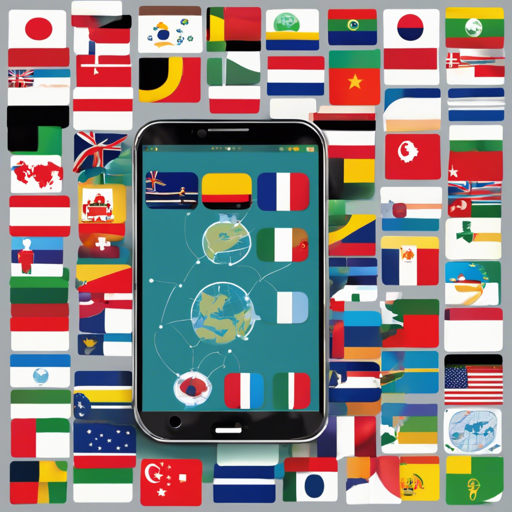In the realm of mobile app development, understanding and adapting to user preferences based on their locale, language, and timezone is crucial. The Cordova Globalization Plugin is a powerful tool that assists developers in tailoring experiences for users around the globe. This article will walk you through the steps to utilize this plugin effectively, while also providing troubleshooting tips to help you handle common issues.
Understanding the Basics
The Globalization plugin distinguishes between locale and language. Think of locale as the party planner for your user experience—setting the stage for how dates, times, and numbers are presented—while language is the primary language in which the messages are communicated. For instance, a user could speak English but prefer the locale settings of France, leading to their numbers and dates being formatted in the French style while the text remains in English.
Getting Started with the Globalization Plugin
To access locale data in your Cordova app, you first need to install the plugin:
cordova plugin add cordova-plugin-globalizationKey Methods and Their Usage
Below, we delve into the essential methods provided by the Globalization plugin. Imagine each method as a door leading to different rooms filled with user-specific information!
- navigator.globalization.getPreferredLanguage – This method fetches the preferred language of the user.
- navigator.globalization.getLocaleName – Retrieves the locale currently set by the user.
- navigator.globalization.dateToString – Converts a date object to a string based on the user’s locale.
- navigator.globalization.numberToString – Converts a number to a string according to user preferences.
- navigator.globalization.getCurrencyPattern – Returns a pattern for formatting currency values.
- navigator.globalization.getDateNames – Gets an array of month or day names as per the user’s preferences.
Example Code Snippet
Here’s how you can get the preferred language and locale name!
navigator.globalization.getPreferredLanguage(function (language) {
alert("Language: " + language.value + "\n");
}, function () {
alert("Error getting language\n");
});
navigator.globalization.getLocaleName(function (locale) {
alert("Locale: " + locale.value + "\n");
}, function () {
alert("Error getting locale\n");
});Troubleshooting Common Issues
As you embark on utilizing the Globalization plugin, you may encounter certain roadblocks. Here are a few troubleshooting tips that can help:
- Issue: The
navigator.globalizationobject is undefined. - Solution: Make sure that you’re waiting for the
devicereadyevent before making any calls to the plugin. - Issue: Errors when fetching language or locale.
- Solution: Ensure you’re implementing the success and error callbacks properly. Handle any
GlobalizationErrorthat arises. - Issue: Plugin deprecation warnings.
- Solution: Consider migrating to the ECMA Internationalization API as this is now supported on various platforms.
For more insights, updates, or to collaborate on AI development projects, stay connected with fxis.ai.
Conclusion
In conclusion, the Globalization plugin is an indispensable companion for developers aiming to create a user-friendly mobile experience across different cultures. Mastering its methods will empower you to provide features like locale-specific formatting for dates and numbers, ensuring that your application resonates with users worldwide.
At fxis.ai, we believe that such advancements are crucial for the future of AI, as they enable more comprehensive and effective solutions. Our team is continually exploring new methodologies to push the envelope in artificial intelligence, ensuring that our clients benefit from the latest technological innovations.

